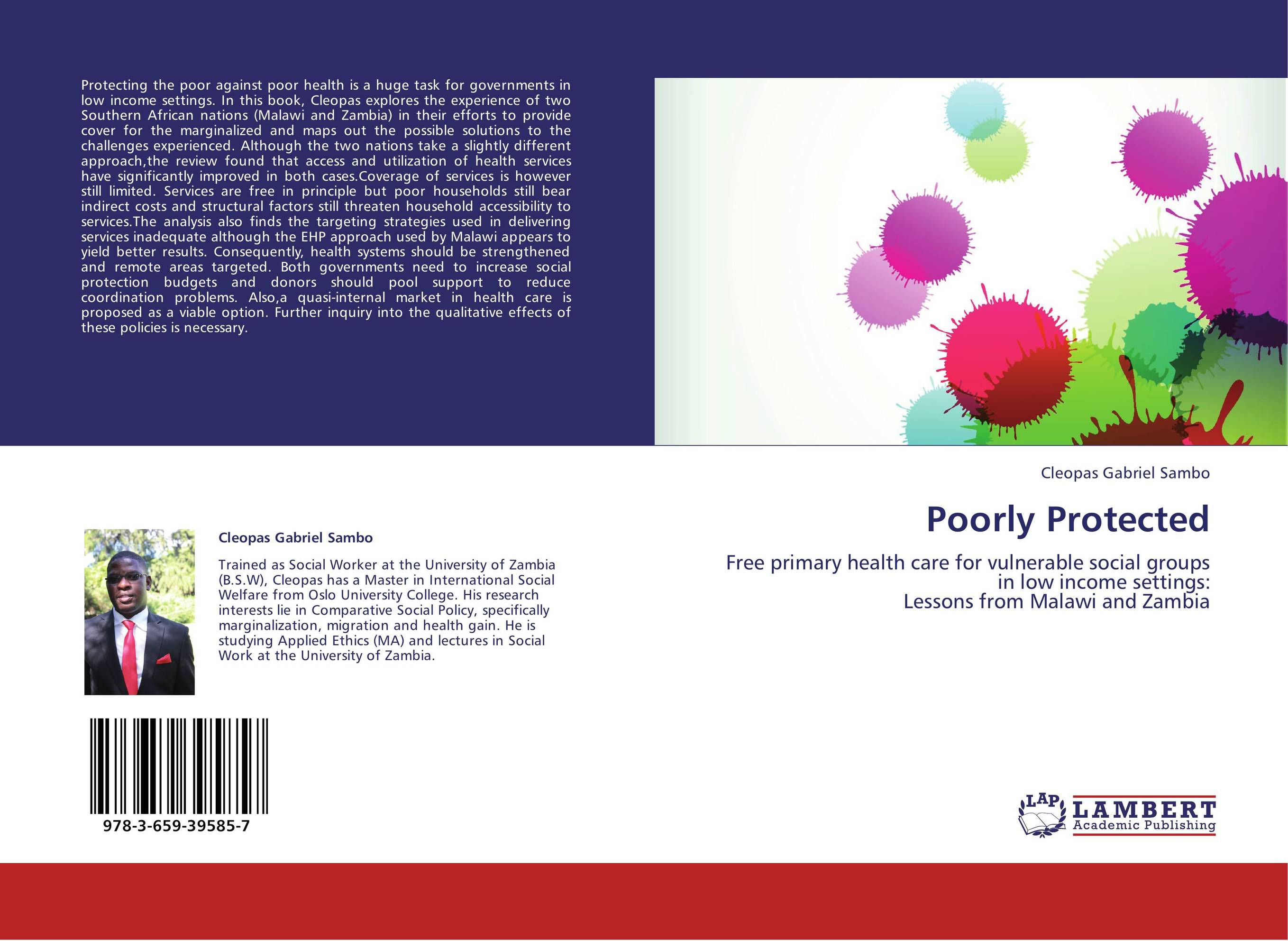| Поиск по каталогу |
|
(строгое соответствие)
|
- Профессиональная
- Научно-популярная
- Художественная
- Публицистика
- Детская
- Искусство
- Хобби, семья, дом
- Спорт
- Путеводители
- Блокноты, тетради, открытки
Poorly Protected. Free primary health care for vulnerable social groups in low income settings: Lessons from Malawi and Zambia

В наличии
| Местонахождение: Алматы | Состояние экземпляра: новый |

Бумажная
версия
версия
Автор: Cleopas Gabriel Sambo
ISBN: 9783659395857
Год издания: 2013
Формат книги: 60×90/16 (145×215 мм)
Количество страниц: 84
Издательство: LAP LAMBERT Academic Publishing
Цена: 24061 тг
Положить в корзину
| Способы доставки в город Алматы * комплектация (срок до отгрузки) не более 2 рабочих дней |
| Самовывоз из города Алматы (пункты самовывоза партнёра CDEK) |
| Курьерская доставка CDEK из города Москва |
| Доставка Почтой России из города Москва |
Аннотация: Protecting the poor against poor health is a huge task for governments in low income settings. In this book, Cleopas explores the experience of two Southern African nations (Malawi and Zambia) in their efforts to provide cover for the marginalized and maps out the possible solutions to the challenges experienced. Although the two nations take a slightly different approach,the review found that access and utilization of health services have significantly improved in both cases.Coverage of services is however still limited. Services are free in principle but poor households still bear indirect costs and structural factors still threaten household accessibility to services.The analysis also finds the targeting strategies used in delivering services inadequate although the EHP approach used by Malawi appears to yield better results. Consequently, health systems should be strengthened and remote areas targeted. Both governments need to increase social protection budgets and donors should pool support to reduce coordination problems. Also,a quasi-internal market in health care is proposed as a viable option. Further inquiry into the qualitative effects of these policies is necessary.
Ключевые слова: free primary health care, Health, Constraints, Social Protection, Free health care, low and middle income countries



